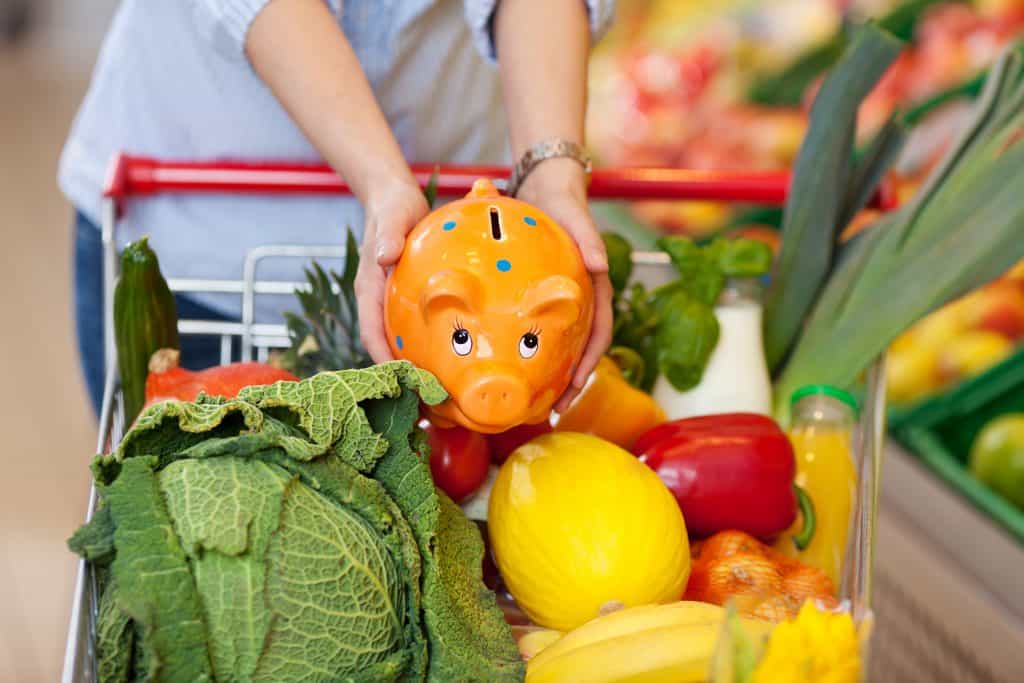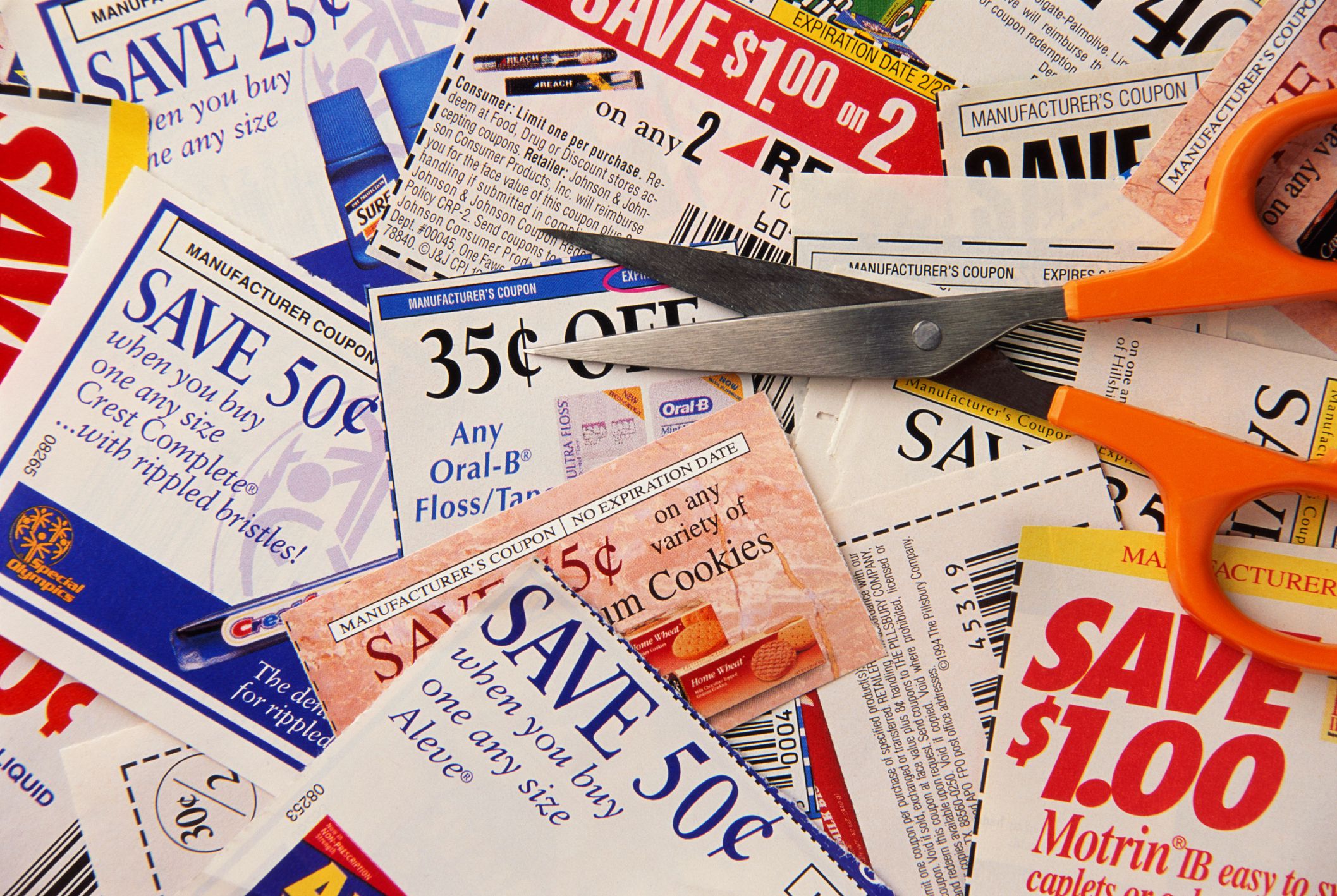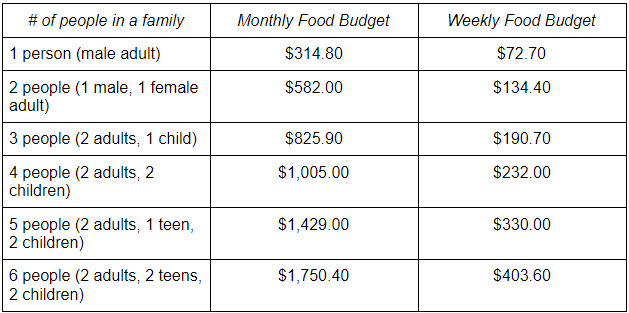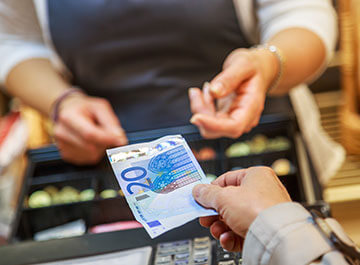How To Save Money On Groceries Without Coupons In 2021
You may have been asked this question before, but how are you and your family doing money-wise this pandemic? Are you one of the many who lost their jobs, or closed their businesses because of Covid? And now, almost every month, we hear on the news the fluctuating numbers of people infected with the new variants.
Author:Paolo ReynaOct 06, 202185.4K Shares2.3M Views

You may have been asked this question before, but how are you and your family doing money-wise this pandemic? Are you one of the many who lost their jobs, or closed their businesses because of Covid? And now, almost every month, we hear on the news the fluctuating numbers of people infected with the new variants. A lot of mothers use coupons to save money on their groceries even before the pandemic. It’s actually one of my favorite TV shows back then---Extreme couponing. For me, the thrill and joy of seeing these people do their grocery haul and only spending a few dollars because of coupons are mind-blowing. But we’re in the year 2021, things are different.
According to the U.S. Department of Agriculture, as of May 2021, groceries for a family of four cost $687 to $1,370 per month, not including takeout and restaurant meals. What a large sum of money! You're not crazy if you think the cost of food has risen recently. The cost of goods has increased by 2.4 percent since 2020! 1 While part of the price increases were caused by COVID, the price increases continue. In March 2021, there was a 0.4 percent increase over February. 2 Basically, it jumped almost a half-point from one month to the next.
The good news is that there are methods to spend less on food and still eat a healthy, balanced diet. You may also be pleased to learn that you are not required to clip coupons. Other strategies, according to experts, may save you even more money. What could be more effective than coupons? While you shop strategically, you buy what you need when it's on sale. Ideally, you'll stock up on these essentials in enough quantity to last until the next sale. Smart shopping, if done correctly, should save you more money than buying at full price with coupons. But let’s define first what coupons are and how can they help.
What Are Coupons?
According to Wikipedia, “a coupon is a ticket or document that can be redeemed for a financial discount or rebate when purchasing a product. Coupons are typically issued by consumer packaged goods manufacturers or retailers for use in retail outlets as part of sales campaigns. They are frequently sent via mail, coupon envelopes, magazines, newspapers, the Internet (social media, email newsletters), direct from the retailer, and mobile devices like cell phones.” Another definition is “A coupon is a piece of paper that entitles you to a 10% discount on a restaurant meal. A coupon is the portion of a savings bond that can be detached and used to redeem interest payments. The amount of interest that must be paid on a bond or note until it matures.”
Is Extreme Couponing Still Possible In 2021?
Is extreme couponing still popular? Yes, indeed. It doesn't matter if you stack a sale price with a single coupon or a store and manufacturer coupon - as long as you use more than one sort of discount on an item, it's called extreme couponing. Couponing is a popular and simple way for shoppers to save money on groceries, personal care products, and other home items, but it is not without restrictions and regulations. When using coupons, it is critical that couponers grasp the rules and stay within the legal limitations. Failure to do so may result in coupon fraud, which may result in criminal prosecution.
How Much Money Should You Set Aside For Groceries?
Here's the quick answer: According to financial expert Dave Ramsey, you should aim to spend 10% to 15% of your take-home earnings on meals. This total covers both groceries and meals out. Although, we all know that not everyone can follow that rule, especially if you yourself or a family member has different dietary needs and that means you have to shell out more money for a specific type or group of food or goods. The table below displays typical food budgets based on the number of persons in a specific home, according to USDA Cost of Food for Families, January 2021.
How To Spend Less On Groceries Without Coupons?
- Shop after a good meal. When shopping at the grocery store, you'll buy fewer snacks and/or other items that you don't normally buy.
- Stick to your plan, especially if your children are "helping".
- Shop for the week's meals after you've planned them out, and then get what you've planned to serve up. If a full week of preparing sounds overwhelming, start with 3 or 4 days.
- Only shop once a week. Every day or several times a week shopping will result in increased spending.
- When you have energy and aren't exhausted following a long day of work, go shopping. Focusing and making sensible decisions are easier when you have energy and aren't distracted.
- Return your bottles and cans in exchange for the deposit you paid. If you have children, enlist their assistance in this task and allow them to keep the money they make.
- When you're weary, stressed, or in a hurry, go to familiar stores. You'll find what you're looking for and be able to obtain it swiftly.
Tips On How To Save Money On Groceries Without Coupons
Here are some tips you can follow in order for you to save money without using any coupons.
Before You Go Shopping, Have A Look At Your Shelves
Take a check at your refrigerator, freezer, and pantry for a few minutes. You'll want to keep an eye on what you're running low on, as well as what you have in stock. To avoid wasting food by not using it before it goes bad, you should do this every day. When planning your weekly menu, keep these foods in mind. Consider going through your cupboard (or refrigerator) to see what meals you can make using the things you currently have. The chicken thighs in your freezer and the unopened cans of black beans and salsa on your shelf are completely OK. If you use foods that you already have, you'll save a lot of money.
A List Is A Must
When you make a list, you protect your wallet from impulse purchases. No need to worry about forgetting anything if you've already checked what you have at home and planned your menu based on the store's sales. It also shields you against grocery shop swindlers who stuff end caps with "sale" things that aren't really on sale.
The use of a list can also save you a great deal of time. Why not organize your shopping list based on the aisle layout if you buy at the same store every week? There is no need to go from one side of the store to the other, avoiding all of the end caps and other temptations.
Buy Store-brand Products
Despite the 2008 financial catastrophe, store-brand foods have made great strides. It's possible that they're virtually identical to the name-brand goods, except for the flashy packaging and advertising, in certain situations. What if you don't want to try a retail brand? Compare the ingredients given below. Rest easy if they're nearly identical to the name-brand product. When it comes to choosing between store brand and name-brand, the more risk you take, the better, but that's not always a bad thing.
According to Consumer Reports, most store brands match the flavor and quality of name brands—yet they're usually 20–25 percent less expensive! 3 If that isn't enough to persuade you, a family of five can save up to $3,000 per year by switching to store brands. 4 In other words, your less expensive lasagna will taste exactly as excellent as Grandma's (provided you can cook as well as Grandma, which we cannot guarantee). Still not convinced? Take a look at this: Many chefs choose generic when purchasing necessities such as salt, sugar, and baking soda. And they're the experts on food! So, when it comes to how to save money on groceries, listen to the experts. With that much money at stake, it pays to be cautious.
Don’t Pay The Store To Perform Work For You
You’d think with all of the bagged lettuce recalls and health warnings, people would quit buying the stuff. Apparently, the pull of convenience is simply too powerful, and that might cost buyers in more ways than one. Having the shop wash and slice vegetables for you is easy but it raises the cost up sometimes as much as 40 percent. Spending an hour washing and chopping veggies on the weekend might not sound like a lot of fun, but when it results in savings of $20 or more it’s worth it!
The same goes for grated cheese. An 8-oz. box of shredded cheddar costs $2.29 at my Kroger’s while a block of cheddar that weighs twice as much is only a $1 extra. In addition to melting better, cheese that is shredded at home does not require cellulose powder to keep it from clumping.
If You Can, Go Shopping Without The Kids
Food businesses advertise soda and other harmful foods to children for a reason: it works. Tired parents who are pressed for time often give in to their children's constant requests for sweets. Even if your children's treats are a box of clementine oranges, you've spent money you hadn't budgeted for, and it will show up on your receipt. Children will also divert your attention away from pricing comparisons. It's all too easy to grab the brand you normally purchase, even if it's not on sale, since you're desperate to get them home before they have a meltdown. If you absolutely cannot leave them with a family member or other caretaker, try to schedule your travels around the store's least busy hours and involve your children in helping you find the best deals.
Preserve And Keep In A Safe Place
When the farmers market (or your garden) is bursting with ingredients, buy in bulk and freeze them for the winter. Yes, it may appear that you are spending more money throughout the summer due to the increased food and canning jars. Consider each jar of tomato sauce or pickles to be an investment.
In the winter, you can buy a box of pasta for a few dollars and pick a container of your own "summer in a jar" tomato sauce from the shelf. You'll have made a low-cost meal. Consider how satisfying it will be to consume the sauce that you produced. Grandma would be overjoyed! When it comes to sauce, investing in a vacuum sealer will save you time and effort. Create a day where you make large batches of sauces, such as curry, tomato, and cheese. When you want all the comfort of a tasty sauce with the least amount of effort, vacuum seal and freeze them. To resuscitate the sauce, all you need is some simmering water or a slow cooker.
Another tip to avoid food waste: If you store your food properly, you can reduce the amount of food that goes to waste. The door of the refrigerator should not be used to store dairy goods (excluding butter). Don't store potatoes and onions together since the onions' gasses can cause the potatoes to spoil more quickly as a result of the gasses.
If, on the other hand, some food is still going bad, you can try to reuse it instead of throwing it out. For instance:
- Use soggy or wilted vegetables in soups, stews, and broth.
- Smoothies, muffins, and bread can all benefit from soft/bruised fruits.
- Croutons or breadcrumbs can be made from stale bread.
Another strategy to reduce waste is to pay attention to the ‘sell by’, ‘use by’, and ‘best by’ dates on products while you are in the store. If you don’t think you or your family will be able to consume an item by the advised date, don’t buy it.
Use Money-saving Apps
When looking for methods to save money on groceries, don't overlook all of the rebate apps available!
Ibotta, Receipt Hog, Checkout 51, and Fetch Rewards are just a handful of the fantastic applications available to help you save money. While rebates might not provide an immediate discount (like a standard coupon), they should save you money in the long term.
Ignore Eye-level Items
Have you ever noticed that the most expensive things on the grocery shelves tend to be right at your eye level? That’s no coincidence. Grocery stores are savvy. They want you to grab the splurge products!
Instead of falling for such marketing techniques, glance up and down while you shop. The more affordable brands tend to be higher or lower on the shelves. Think of it as a treasure hunt for the best deal.
Shop In Season
Fruits and vegetables are less expensive when they are in season because they don't have to be imported from across the country or even from another country. You can satisfy your strawberry craving in the middle of a Midwest winter thanks to modern shipping techniques, but you'll pay a high price for it. The freezer section is the place to go if you're merely looking for fruits for smoothies. You'll get fruit that was flash-frozen as soon as it was picked in season, but you won't have to pay the out-of-season price. The same goes for vegetables that will be used in soups or casseroles. They're also just as nutritious as the non-frozen variety!
Make A Cash Payment
Cash is king, as Dave Ramsey constantly emphasizes. Sticking to your shopping budget and paying with cash is the greatest method to ensure you'll end up with a lesser price. When you go to the store with cash in hand, you know exactly how much you can spend because once the money is gone, it's gone! It will also assist you in prioritizing the meat-and-vegetable essentials over the ice cream and cookie impulsive purchases. Those little things are fine as long as you plan beforehand!
If you find yourself dining like royalty at the start of the month and then scraping by at the end, take out cash for groceries every week rather than once a month. You'll have a better idea of how much you can realistically afford to spend on each supermarket trip this way.
“„Use the envelope system and put unnecessary items at the end of the counter. I would tell the cashier I only had a certain amount of money to spend and to stop when I got to that point. Instead of it being an embarrassment, it was a bonding moment for me and the cashier when I made my goal, or even if it didn’t work out. — Jan B.
There you go! Ten tips to help you be more budget savvy and help you save money on your groceries. Also, don’t be afraid to find other creative ways personalized to your needs. Who knows, you might even get to help a friend with their budget problems.

Paolo Reyna
Author
Paolo Reyna is a writer and storyteller with a wide range of interests. He graduated from New York University with a Bachelor of Arts in Journalism and Media Studies.
Paolo enjoys writing about celebrity culture, gaming, visual arts, and events. He has a keen eye for trends in popular culture and an enthusiasm for exploring new ideas. Paolo's writing aims to inform and entertain while providing fresh perspectives on the topics that interest him most.
In his free time, he loves to travel, watch films, read books, and socialize with friends.
Latest Articles
Popular Articles






